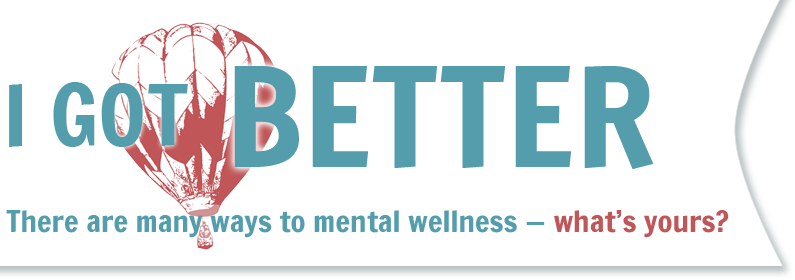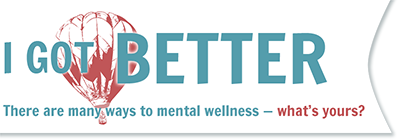Proud to Be Me!
Louise Gillett; Dorset, England

During your mental health care, have you often felt hopeless about your chance of getting better?
Yes. I was told by a group of mental health doctors and nurses that I would never get better, that I would need medication for the rest of my life and that I would get worse as I got older. I believed them.
Has a mental health provider ever told you that you could reach a personal goal despite your psychiatric diagnosis (for example, education, career, independent housing, relationship, children, etc.)?
Yes. I did see a student psychologist when I was at a day hospital – she spent some time trying to help me to decide on and achieve some personal goals.
Has a mental health provider ever told you that you could not reach a personal goal because of your psychiatric diagnosis (for example, education, career, independent housing, relationship, children, etc.)?
Yes. It was made clear that because of the ‘disease’ of schizophrenia, my life was effectively over, that I would stagnate and could not expect to have a decent future.
If you overcame hopelessness that you could get better from a mental health or emotional problem, was there a turning point for you?
I reached rock bottom in my mid twenties. I was living in a hostel, I had become extremely overweight, life was no fun at all. I knew in my heart that what was seen by the medical professionals at the day hospital I attended as the negative symptoms of schizophrenia was really no more than lethargy and depression. I realized that I could not carry on in this way, and began to make an effort to exercise, to slim, and to join the world again. I still remained immensely anxious, and had another breakdown a few years later, after my first daughter was born. I only conquered my anxiety relatively recently – after I published my book ‘Surviving Schizophrenia: A Memoir’ in my maiden name, Louise Gillett, I realized that I no longer needed to hide my diagnosis from the world. I finally felt confident to accept that I had been given this label, but that I am free to reject it because it is not part of my reality. I also had about ten sessions of CBT, which have just finished, and the CBT finally showed me how to banish negativity from my mind and to rid my life of anxiety – something that has been a complete revelation.
Tell us what recovery means to you. How would you define recovery from mental health or emotional problems in your own words?
I see recovery as an acceptance of myself as a normal person. I no longer see myself as different or inferior to others because of my past mental health problems. I feel that I am as mentally healthy as the next person. I guard my mental health as I do my physical health, because these things are important to me – I eat well, I sleep well, I exercise and I trust that I will stay well as a result. I no longer feel myself vulnerable to breakdown, because I realize that my intense and constant anxiety was what led to my previous breakdowns, and I have finally conquered this. I am also much more able to communicate any worries and concerns, and to recognize if I am in emotional turmoil, and take steps to deal with this. I welcome the journey I have been on – although I would not wish mental health problems on anyone, I feel that I have become a better and more understanding person because of my troubles.
If you could send a brief message to someone receiving mental health care today who is feeling hopeless about getting better, what would you say?
I was extremely ill – I was sectioned on three separate occasions. I honestly believed that I was schizophrenic and therefore helpless and hopeless. Today I am an author, a teacher and a wife and mother of four truly wonderful children, and life honestly could not be better. There is always hope.
Can you give examples showing you have gotten better from a mental or emotional problem, such as how you are doing well or accomplishing goals you have chosen?
I work part-time as Peer Specialist in mental health. I teach writing, and I write a mental health blog. I have written a book about my struggles with mental health, and I have recently been invited to talk at a University conference on the subject of schizophrenia. I have also written other short e-books. I feel well, I am happy, and every day I count my blessings. I have four wonderful children who are all strong and confident and I see their progress as proof that I am a decent and capable person – I have only just started part-time work now that the youngest is ready for full-time school – until now I stayed home and looked after them. (Of course their father is brilliant and has been a great help!) I no longer feel shame about my past – I have put it all behind me and moved on, and I am proud to be me!


